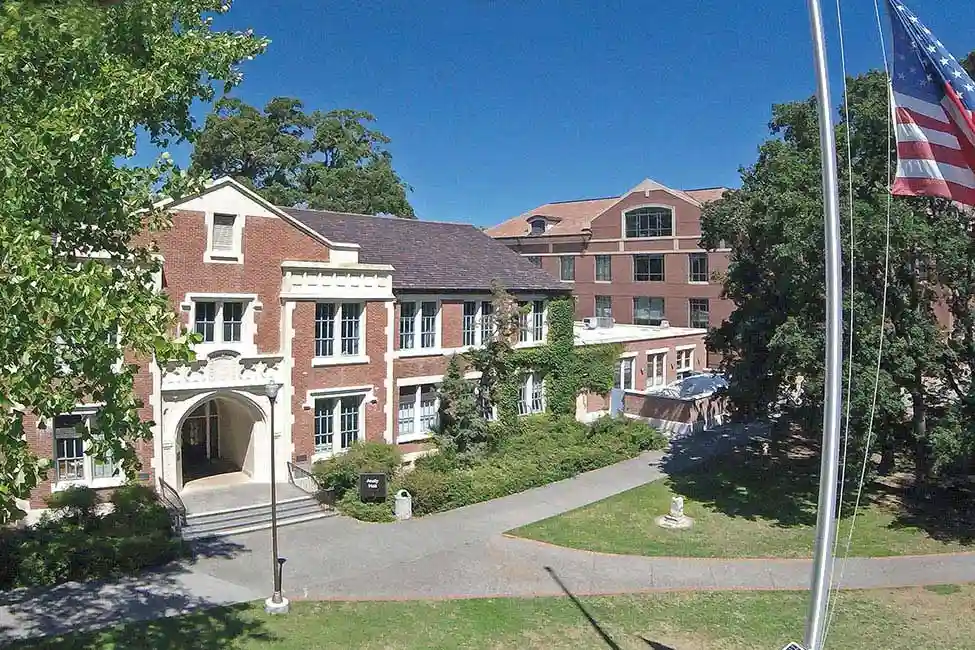Paying for Your U.S. Education: Invest in Yourself

Is studying in the USA your goal? Does paying for study abroad seem like an impossible task? It’s not!
Like many students, both international and American, you are probably concerned about how you will pay for your studies in the USA. Don’t let this ruin the exciting plans you have made. With a little planning, you will come out ahead. If you are feeling overwhelmed by the cost, consider what an American education and degree will mean to your future. Education is one of the best investments you can make—an investment in yourself. Plus, the money isn’t all going toward lab fees and library late book charges. You are also going to be having fun, spending money on things like ski trips and nights out on the town eating sushi with your new friends!
Make an accurate estimate for the overall cost of your study in America, then create an accurate budget. There will be many components to your budget that you need to take into consideration. Be aware that many U.S. universities and colleges require that international students pay for their first year’s tuition in one installment. In order to pay this sizable amount, you and your family will likely need to start saving well in advance.
Despite this, don’t let the cost of a university education in the USA scare you off! A U.S. education and proficiency in English paves the way to more secure and higher paying jobs. In the end, your education here will pay for itself many times over.
To finance your U.S. education, you may have to rely on financial aid packages, which include grants, scholarships, loans and work/study options. Make time to thoroughly research the funding opportunities available to you.
Scholarships
Very few U.S. universities and colleges are able to offer robust financial aid to international students. Therefore it is critical for you and your family to be responsible for all of your education, personal housing, and food costs. Scholarships are for varying amounts and one will only cover a small portion of the total amount necessary for an academic year in the States.
You can write to the school of your choice to ask for a scholarship consideration form. But, you should first check with your family, government, home institution, and any other organizations to which you belong as a source for funding your studies. You will have greater opportunities and you won’t be competing with students from all over the world. Plus, if the scholarship program originates from your country, the process may be easier for you.
Loans
Loans can make it possible for you to study as an international student in the United States. There are also international student loans that are available. While the majority of American students have to obtain loans to study, taking out a loan should not be taken lightly. Rigorously research your other options first. It is best to gain as much funding as possible—money you don’t owe back—and then if need be, supplement the remaining costs with loans. Compare interest rates and terms at various financial institutions to find the best deal for the long term.
Just like any other investment, remember the return. You will be investing in your future career and earning power.
Work/Study
An estimated 75 percent of all full-time students studying at U.S. universities and colleges hold at least part-time jobs. If you are coming to the USA for more than a short-term program or exchange, it is likely that you will have an F-1 Student Visa. With this type of visa you may qualify for work/study programs at your school. You might want to work extra hours while still in your home country, as visa restrictions in the USA reduce the number of hours you are able to work.
If you are able to get a work/study job, be sure not to stress yourself by overloading your schedule with too much work and a full load of classes. You have come to the USA to study and you want to be able to enjoy and excel in your classes. However, an advantage to holding a part-time job is the extra money, as well as the practical work experience. Find a balance that works for you.
Entrance Exams: $500
College or university admission exams, such as the SAT, TOEFL, and GMAT, can cost from $50 to $500. There may be additional fees for processing, sending your scores to schools, etc. You may have to take the exams more than once, so set aside the funds to do so. It’s important to give yourself enough time to take the tests so that the school will receive your scores before the admission deadline. There are additional fees to have your score results rush-delivered.
Application Fees: $250 – $600
Application fees to cover administration and processing range from $50 to $75 per application. Most applicants apply to four to ten schools.
Tuition: $3,500 – $30,000
Tuition costs vary greatly from school to school and location. Depending on where you choose to study, your annual tuition can average from $3,500 to $30,000. Typically, English as a Second Language (ESL) schools and community colleges cost less than colleges or universities. State schools, which are financed by the local state and U.S. government, cost less than private colleges or universities. However, most state schools charge a higher “out-of-state” rate for international students and you should budget for annual inflation of tuition costs, around five percent. A helpful website for comparing tuition is collegeboard.com.
Room and Board: $7,000 – $10,500
Most students choose a dormitory or residence hall to live in for at least the first academic year. Some schools require that freshman live in the dorms during their first year. Two or more people usually share dorm rooms, which is a great way to make friends and you and your roommate can explore your American university or college together. Housing is also available on many campuses for married students and families.
Rural areas are often much less expensive than larger cities. In larger cities, and at English language institutes, students can live more economically off campus. Rental agreements in the USA often include first and last month’s rent, plus a security deposit.
No matter where you choose to live, take a thorough inventory of the apartment with your landlord and note any pre-existing damage. Make sure to have a signed contract with rental terms and conditions for returning your deposit. If you don’t understand something in your rental contract, have a friend help you. It is important that you understand what you are signing; don’t feel pressured by your landlord to hurry.
Another option many students enjoy, is living with an American family. This is commonly referred to as a “homestay.” If your school is equipped, they can help you coordinate a homestay. Otherwise, the school can provide you with a list of companies that help arrange stays in family homes. Don’t be afraid to ask for guidance.
The family provides you with your own room or a shared room, as well as breakfast and dinner in a family setting. Living with a host family is an especially good option for younger students who aren’t used to living on their own. It is also one of the best ways to become fluent in English and gain a firsthand understanding of American family life.
Travel Costs: $500 – $3,000
To calculate your travel costs, investigate ticket prices from your country to the USA. Air travel within the United States typically ranges from $300 to $700 per round-trip ticket.
Books and Materials: $900 – $1,300
You are responsible for paying for books, notebooks, computer accessories and other study supplies. Expect to spend around $1,000 on books and materials each year. When possible, buy or rent used textbooks. Websites like efollet.com and amazon.com are good choices for buying used books. This will save you an enormous amount of money. You can also sell your books once the class is completed. Many school bookstores have a buy-back day. These are convenient, but depending on the textbook and time of year, you may consider selling your textbooks online.
Health Insurance: $350 – $500
As an international student at a U.S. institution, you will be required to have health insurance. To begin your search for insurance, check with the college or university you would like to attend to see what policies they have available for international students. You can then compare the services and prices offered through your school to those of other organizations and companies. Make sure that your insurance company and coverage meets the requirements of the school.
Additionally, most U.S. universities and colleges have a medical center that provides examinations or treatment for minor injuries and illnesses for a small fee. Campuses usually have counseling centers as well. These services can not substitute for a health insurance requirement.
Personal Expenses: $2,500
Of course, you will require all of the things that you usually need at home: personal care items, medicine, money for laundry, dry cleaning, transportation, recreation, entertainment, and so on. Carrying large amounts of cash is not advised anywhere in the USA. Very rarely is cash even needed; most purchases can be made by a debit or credit card.
Don’t let all of this serious talk about money stress you! Remember, you are going to the USA to study—and to have fun! Some of your money will be spent on fun things like ordering pizza or going out dancing! Maybe you’ll want to splurge on an “I ♥ New York” T-shirt, or a pair of authentic, vintage Levi’s. Balance thrift and fun, and your study abroad experience is sure to be a financial success!
* Cost information courtesy of The College Board and eduPASS.
Factoid:
- 75% of all full-time students studying at U.S. universities and colleges hold at least part-time jobs
Costs:
- Entrance Exams: $500
- Application Fees: $250 – $600
- Tuition: $3,500 – $30,000
- Room & Board: $7,000 – $10,500
- Travel Costs: $500 – $3,000
- Books & Materials: $900 – $1,300
- Health Insurance: $350-$500
- Personal Expenses: $2,500
Annual Average Tuition Costs by Type of Institution, 2012 – 2013
- Public Two-Year Institution: $3,131
- Public Four-Year Institution: $21,706
- Private Four-Year Institution: $29,056
Average Room and Board Costs by Type of Institution, 2012 – 2013
- Public Two-Year Institution: $7,419
- Public Four-Year Institution: $9,205
- Private Four-Year Institution: $10,462
*Source: The College Board, Annual Survey of Colleges
Travis
Get matched to the best program for you
Let us know what you're looking for so we can find the best school for you.
Useful Articles
Check Out These Schools

Santa Rosa Junior College
$10,000 — $15,000 Year


Start your U.S. adventure with Study in the USA

Learn About U.S. education financing, housing, and more
Resources
Learn about American culture and education direct from our experts at Study in the USA. Read more













